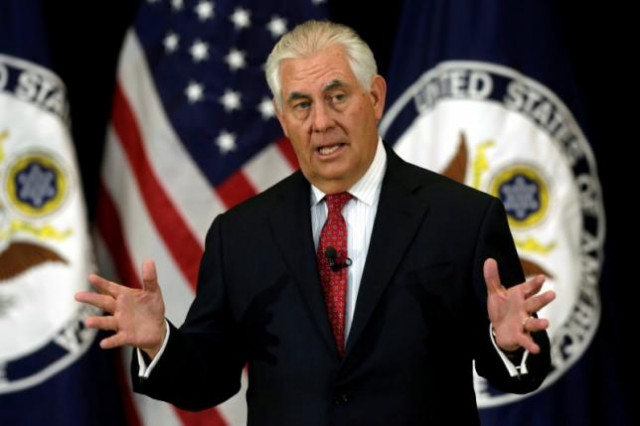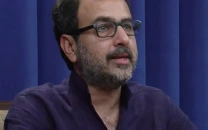CPEC to dominate Tillerson, Mattis trips
Experts believe Indian, American opposition to China’s One Belt, One Road initiative behind policy shift on Pakistan

US Secretary of State Rex Tillerson PHOTO: REUTERS
More high-level meetings are scheduled between the two sides as Tillerson and Defense Secretary James Mattis will undertake back-to-back visits to Islamabad later this month. The intense bilateral engagement is meant to repair the fractured relationship between the two countries in the wake of the new Afghanistan and South Asia strategy announced by President Donald Trump.
However, the policy shift by the Trump Administration on China’s ‘One Belt, One Road” (OBOR) initiative may jeopardise the entire process as “the Indo-US nexus is now openly undermining the China-Pakistan Economic Corridor (CPEC)”, according to security and foreign office officials.
Pakistan, China snub US objection over CPEC project
“This was always on the cards,” said a senior foreign office official while reacting to the paradigm shift in the US policy on OBOR. “But their (US) public acknowledgement is surprising,” the official added.
The previous US administration had its reservations over OBOR, but it never publicly opposed the multibillion-dollar initiative.
Now, the Trump administration openly speaks against the plan, which China insists is only aimed at regional connectivity.
Testifying before the Senate Arms Services Committee, Defense Secretary Mattis said the Trump administration opposed the OBOR policy in principle because, in a globalised world, there were many belts and many roads, and no one nation should put itself into a position of dictating OBOR. Another reason for the opposition was that it passed through the disputed territory of Kashmir.
“If you connect all the dots you would understand why the US has been putting so much pressure on Pakistan,” said a security official while requesting anonymity. “The primary aim behind [the new] Pakistan policy is to contain China,” added the official.
The OBOR initiative aims to connect economies of 70 countries through a series of road, rail and sea links. One of the central planks of this idea is CPEC.
US Defence Secretary says will try to work with Pakistan 'one more time'
China considers Pakistan route central to their plans because of its strategic location. “Trouble in Pakistan means trouble for China,” said another official.
That is why, the official pointed out, the US and India have been working overtime to isolate Pakistan on the diplomatic front by implicating it in terrorism.
Reports from Washington suggest that both Mattis and Tillerson are coming to Pakistan to deliver a tough message to Islamabad on its alleged links with certain militant outfits.
In his policy speech on August 21, Trump singled out Pakistan as a country which was supporting the “agents of chaos”. He then threatened Pakistan to change that approach immediately.
“This is all part of their strategy to keep us under pressure,” said the foreign office official, while adding that Pakistan was prepared to deal with the emerging challenge.
Pakistan and China have already rejected the American concerns regarding OBOR. The two countries are expected to intensify their efforts to offset any negative fallout of the new position taken by the US on CPEC.


















COMMENTS
Comments are moderated and generally will be posted if they are on-topic and not abusive.
For more information, please see our Comments FAQ